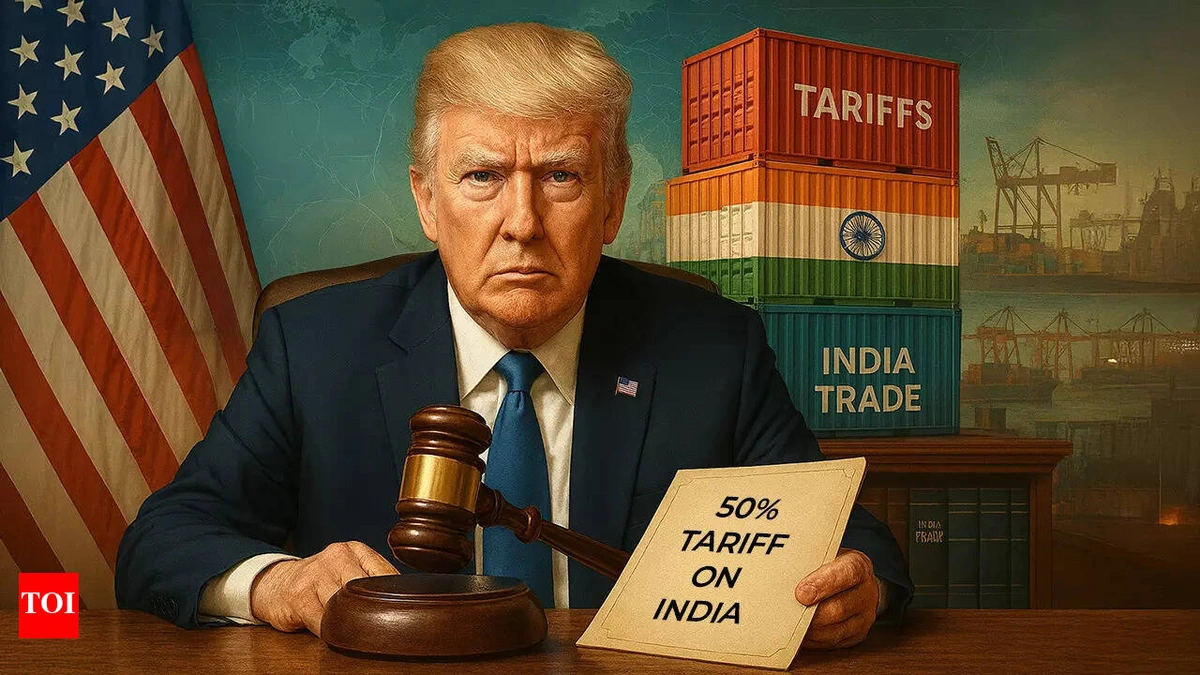Decoding Tariffs | More Than Just Trade Wars – Why They Matter to You
Tariffs. The word probably conjures images of political talking heads and complicated trade agreements. But here’s the thing: tariffs aren’t just abstract economic concepts. They directly impact the prices you pay for everything from your phone to your groceries. Let’s be honest, understanding them is more crucial than ever in our globally interconnected world. So, ditch the jargon, grab your chai, and let’s dive into the real story behind tariffs – and why you should care.
Tariffs | The Basics (Simplified)

At their core, tariffs are taxes imposed on imported goods and services. Think of them as border crossing fees for products. Governments use them for various reasons, from protecting domestic industries to generating revenue, or even as political leverage. But who really pays the price? Well, ultimately, it often trickles down to us, the consumers.
But, let me rephrase that for clarity. Imagine a company imports widgets from China. If a 25% tariff is slapped on those widgets, the company has two choices: absorb the cost (unlikely) or pass it on to you, the buyer. This means higher prices on store shelves. See, it’s not just about big business; it’s about your wallet.
Why Do Governments Impose Tariffs?
This is where it gets interesting. Governments have a whole arsenal of reasons for imposing trade tariffs . One common reason is to protect domestic industries from foreign competition. By making imports more expensive, local businesses have a better chance of competing. It’s like giving them a home-field advantage.
Another reason is revenue generation. Import tariffs can be a source of income for governments, especially in countries with limited tax bases. But there’s a dark side: they can also spark retaliatory measures from other countries, leading to trade wars. A common mistake I see people make is thinking tariffs are always good or always bad. It’s far more nuanced than that.
And sometimes, tariffs are used as a political tool. Countries might impose tariffs on another country as a way to pressure them to change their policies. It’s like saying, “Clean up your act, or you’ll pay the price!” This is all about international relations and the delicate dance of global politics.
The Impact on the Indian Economy
So, how do tariffs affect the Indian economy ? It’s a mixed bag, to be honest. On one hand, tariffs can protect Indian industries from cheaper imports, fostering growth and creating jobs. The Make in India initiative, for instance, often relies on tariffs to give local manufacturers an edge. And what fascinates me is how this plays out differently across various sectors.
On the other hand, tariffs can increase the cost of imported raw materials and components, making it more expensive for Indian companies to produce goods. This can hurt exporters and make Indian products less competitive in the global market. For instance, tariffs on steel imports could impact the Indian auto industry. It’s a delicate balancing act.
According to a report by the World Bank, tariffs can have both positive and negative effects on a country’s economy, depending on how they are implemented and the specific circumstances. As per the guidelines mentioned in the information bulletin, it’s crucial to consider the broader economic context.
Navigating the Tariff Landscape | What It Means for You
Okay, so what does all this mean for you, the average person in India? Well, the most direct impact is on the prices you pay for goods. Increased tariffs on imported electronics, for example, will likely translate to higher prices for smartphones and laptops. Tariff changes can influence daily expenses.
But it’s not just about consumer goods. Tariffs can also affect the prices of essential items like medicines and agricultural products. This can have a significant impact on the cost of living, especially for low-income households. And that’s why it’s crucial to stay informed and understand how tariffs are shaping the economy. A common mistake I see people make is underestimating the indirect effects of tariffs. Think about the supply chain – a tariff on one component can ripple through the entire system.
The Future of Tariffs | What’s Next?
The global trade landscape is constantly evolving, and tariffs are likely to remain a key tool in the arsenal of governments. Whether they’re used for protectionism, revenue generation, or political leverage, it’s important to understand their potential impact.
Looking ahead, we can expect to see continued debates about the role of global tariffs in the global economy. Some argue that they are necessary to protect domestic industries and create jobs, while others contend that they stifle innovation and harm consumers. The truth, as always, lies somewhere in between. Here’s the thing: the conversation around tariffs is far from over.
So, the next time you hear about tariff wars or trade agreements, remember that it’s not just about numbers and charts. It’s about real people, real businesses, and real-world consequences. Stay informed, ask questions, and don’t be afraid to challenge the narrative.
FAQ About Tariffs
What exactly is a tariff?
A tariff is a tax imposed on imported goods and services, increasing their cost.
Why do countries use tariffs?
Countries use tariffs to protect domestic industries, generate revenue, or exert political pressure.
How do tariffs affect consumers?
Tariffs often lead to higher prices for imported goods, impacting consumers’ wallets.
What is the impact of tariffs on the Indian economy?
Tariffs can both protect Indian industries and increase costs for businesses, affecting competitiveness.
Are tariffs always a bad thing?
Not necessarily. Tariffs can protect domestic industries, but they can also harm consumers and disrupt trade.
How can I stay informed about tariff changes?
Follow news from reputable sources, such as economic journals and government publications.













